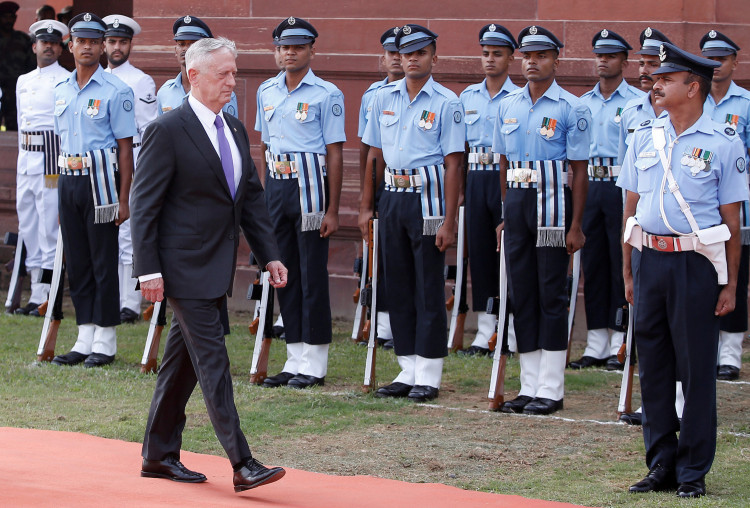U.S. Secretary of Defense James Mattis and Secretary of State Mike Pompeo are traveling to India to attend the first-ever 2+2 Ministerial Dialogue to be held on Sept. 6 in New Delhi. The officials will meet with their Indian counterparts, Foreign Affairs Minister Sushma Swaraj and Defense Minister Nirmala Sitharaman.
The 2+2 is a platform where Washington can improve its relations with India on critical diplomatic and security issues, expand defense trade, and agreed on a framework for greater information sharing and interoperability, said an unnamed senior administration official during a teleconference on Aug. 31. The United States will also use the 2+2 dialogue to strengthen its partnership with India on counterterrorism cooperation, the official said.
The defense trade between the two countries is estimated to reach 18 billion by 2019 from essentially zero in 2008, the official underlined. Washington has recently allowed New Delhi to import dual-use military items in the hopes of making respective military units closer to one another.
All these efforts highlight how the United States is seeing India as an integral part of Washington's national security and a significant partner in advancing peace across the Indo-Pacific region.
The United States is reflecting such optimism for the 2+2 Ministerial Dialogue even if it previously threatened Prime Minister Narendra Modi of economic sanctions if his administration does not reduce its purchase of oil from Iran. Washington has also threatened sanctions if India does not cancel its plan of purchasing S-400 anti-aircraft missiles worth $6 billion from Russia.
U.S. President Donald Trump has plans of imposing fresh rounds of sanctions in November on nations that will continue to buy Iranian oil. This move is in accordance with penalties against Iran over accusations that it continues to develop new atomic bombs, disregarding altogether the nuclear deal it entered with the P5+1 nations.
Trump, can also sanction countries that enter into purchasing deals with Russia's defense department in accordance with a 2017 law signed by U.S. Congress.
A trade war between China and the United States is also ongoing and both sides have been vocal about not bowing to pressures coming from one another.
The Business Times reported on Aug. 23 that China and India pledged to repair their geopolitical ties that suffered since the 73-day Doklam standoff on the Himalayan border in June to August of 2017. Chinese Defense Minister Wei Fenghe and Indian Prime Minister Narendra Modi agreed to maintain peace and stability in the region moving forward.
On the other hand, the Doklam standoff had what made military ties between the United States and India stronger than before.
During the teleconference on Aug. 31, the senior administration official said India and United States will also discuss furthering bilateral trade which grew by 12 billion in 2017, reaching 126 billion in total. The officials will also discuss market access challenges affecting the relations between them.






